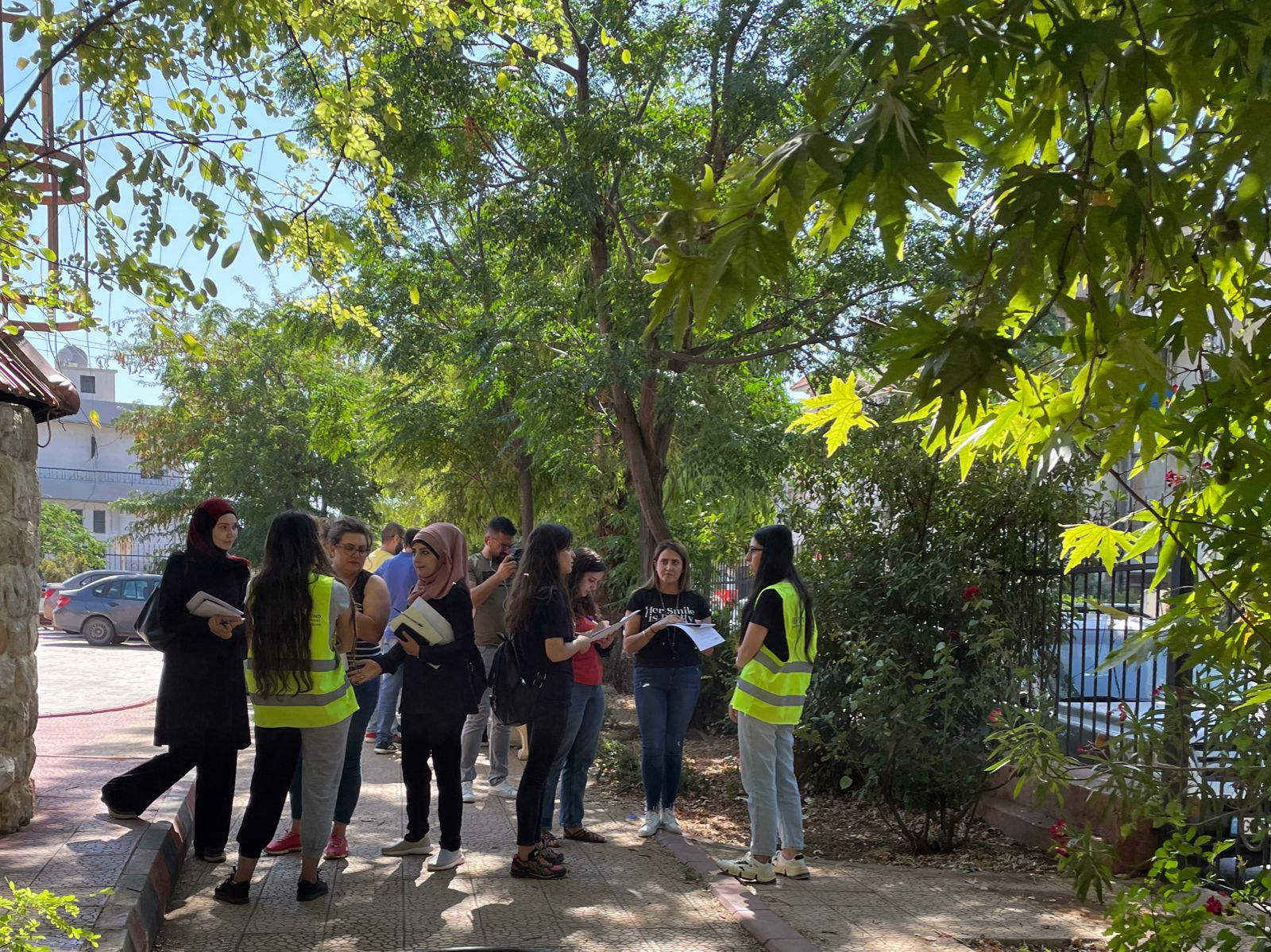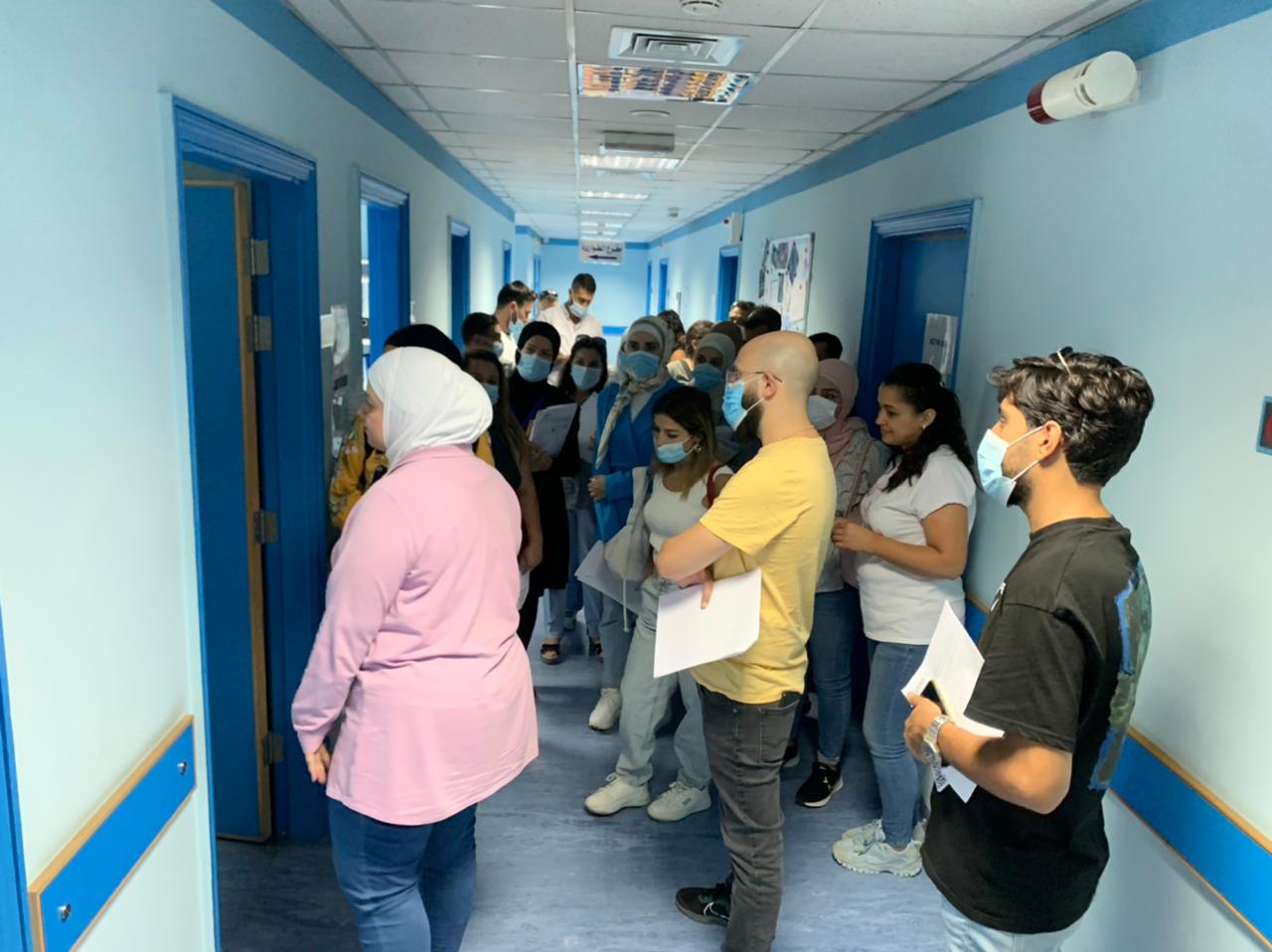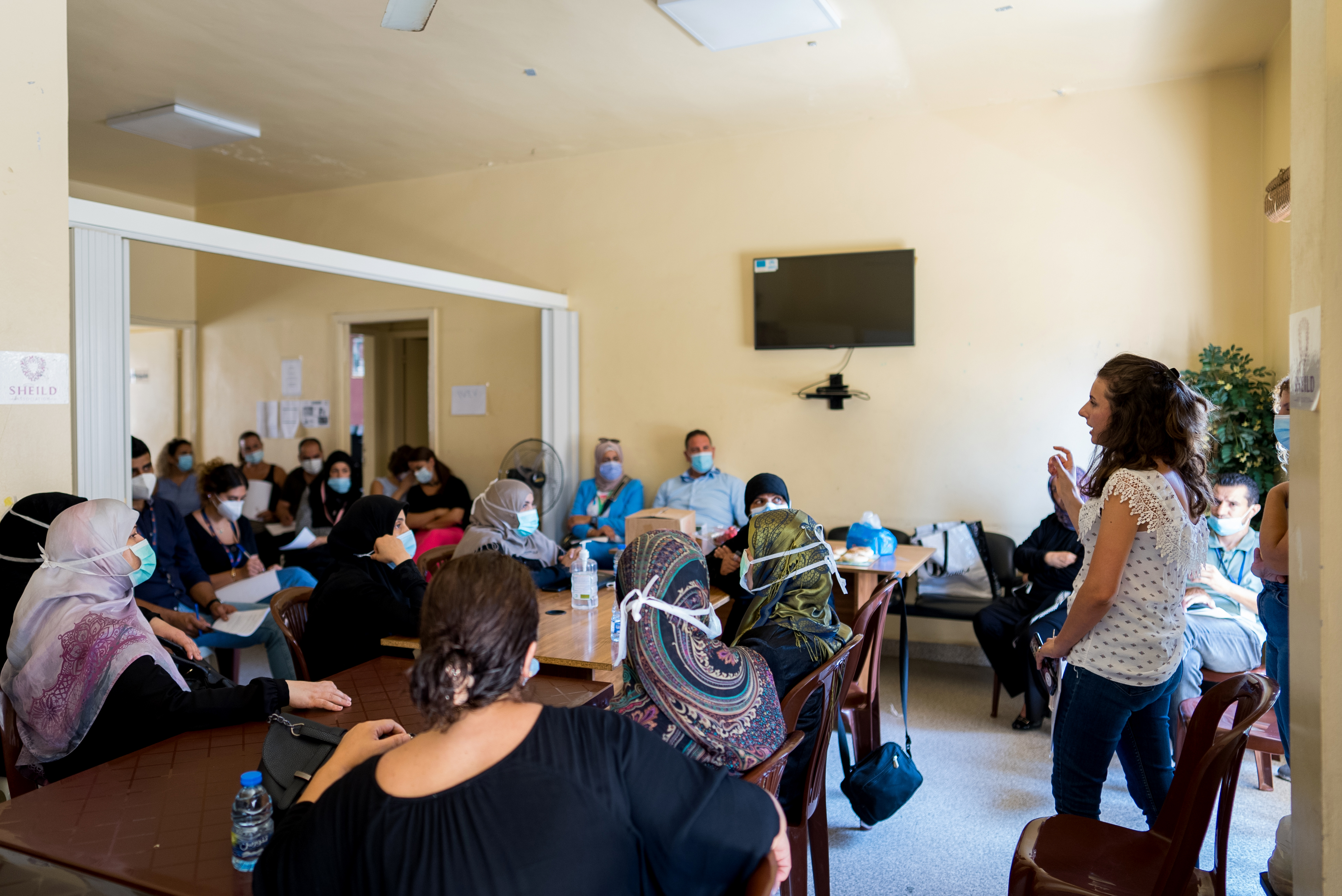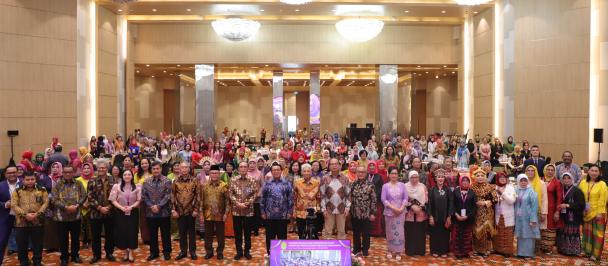Gender trainings support humanitarian actors to strengthen gender equality
June 1, 2023

Gender in the Lebanon Crisis Response Plan
More than 12 years since the start of the conflict in Syria, Lebanon remains at the forefront of one of the worst humanitarian crises of our time. The country hosts the highest number of displaced persons per capita and per square kilometre in the world and continues to demonstrate tremendous commitment and hospitality to displaced Syrians and vulnerable populations within its borders. Lebanon constitutes a unique case as a host country, further facing the devastating impact of the unprecedented economic, financial, social and health crises of the last few years.
The 2023 Lebanon Crisis Response Plan (LCRP) brings together 118 partner organizations to assist more than 3.2 million crisis-affected people living in Lebanon. The plan seeks to meet urgent needs and provide protection and immediate relief assistance to 1.5 million displaced Syrians, 1.5 million vulnerable Lebanese, 31,400 Palestinian refugees from Syria and 180,000 Palestine refugees in Lebanon, while seeking to mitigate the impacts of the Syria crisis on Lebanon’s infrastructure, economy and public institutions. The LCRP includes 11 sectors of intervention, going from education, water and sanitation, nutrition, social stability, livelihoods, protection, energy, food security and agriculture, health, shelter and basic assistance (see the full 2023 plan here - https://data.unhcr.org/en/documents/details/100389).
Involving women and girl in these interventions to assist the most vulnerable is not just important – it is essential. When women and girls are involved in decision-making, design and implementation, this results in services, assistance and processes that uplift entire communities and respond to distinct needs and priorities.
“We are proud that we are able to see concrete impact from our interventions across all programs. We see women who have become leaders in their communities, able to conduct their own initiatives on women’s rights. They are becoming our partners on advocacy at the local level on women’s rights.” – Palestinian feminist organization

Unfortunately, humanitarian assistance often fail to consult and engage with women and girls, and their organizations. To address this gap and re-prioritize support and engagement with women and their organizations, humanitarian and stabilization actors first need to understand gender and women’s issues as they relate to their work.
In 2022, UNDP and partners with the support of the Government of Canada organised 29 gender mainstreaming and gender equality trainings, online and offline capacity building and sensitization sessions across all areas in Lebanon. 756 relief workers, from 180 organisations partners of the Lebanon Crisis Response Plan, participated in the sessions, including 572 women, 2 gender-fluid persons and 182 men.
The trainings covered a wide range of topics, to equip practitioners with the knowledge and skills needed to address gender issues through humanitarian action and stabilisation. Participants were able to understand key gender concepts and reflect on the disproportionate implications of crises on women and girls. Sensitizations on sexual orientation, gender identity, gender expression and sex characteristics (SOGIESC) were also integrated in the trainings. One participant explains: “We were able to learn how to see and understand gender in our work and our daily life, to identify differences”.
Through hands-on and experiential learning, participants visited field activities and observed projects being implemented, directly applying their newly acquired knowledge of gender mainstreaming to real activities. For example, participants had the opportunity to visit primary health care centres, livelihoods and vocational training centres and child friendly spaces. They used practical sector-specific tip sheets to identify gaps and good practices and propose gender mainstreaming entry points for these activities.
Practice-based learning extended to the training room, where participants were able to learn about and test out key tools, such as gender assessment frameworks and the gender and age marker, which is a tool adopted by the humanitarian community to measure the level of integration in projects and startegies. The sessions and tools focused on gender mainstreaming in strategic planning and design, implementation and monitoring and evaluation, as well as in proposal writing. One participant reflects on her learning: “We cannot assume we know communities. We need to ensure that women, girls, boys and men participate and express their needs and capabilities, we need to include them in assessments and project design’.

An immediate positive impact: changes on the ground
“In the past few days, I realized how much I was able to learn, and I really have a different perspective about gender issues now.” – Training participant
The series of training and capacity-building sessions have fostered much-needed space for discussions, dialogue and joint reflections around gender equality and mainstreaming in humanitarian action and stabilization in Lebanon.
Already, initial impact from the training can be witnessed, with observable changes in the way humanitarian workers develop and implement their projects in Lebanon.
Post Training Survey January 2023
94% | Reported increased capacities to integrate gender in humanitarian action and having increased access to the right tools and materials |
59% | Trained other members of their organisation or external partners using the tools shared after the trainings |
81% | Included gender in recent assessments |
33% | Conducted a standalone rapid gender assessment |
86% | Integrated gender in monitoring and evaluation tools |
61% | Included gender sensitive activities in their projects |
Growing interest and commitments to gender equality and gender mainstreaming in humanitarian action and stabilization efforts can also be noted. Many training participants remain in contact with trainers and requests for support to further develop capacities around gender mainstreaming are consistent. Additionally, a large appetite and interest have been witnessed around any opportunities for trainings, mentorship, coaching or discussions around gender in humanitarian action. This not only reflects a growing understanding of the importance of addressing gender issues and engaging women and girls in humanitarian responses, but also highlights an increased commitment to gender equality amongst LCRP partners. Two participants reflected on this renewed commitment, saying: “Following this training, I feel like I now have a bigger responsibility, and I commit to working on sensitizing others.”
Another participant said: “During our distributions, we only registered beneficiaries as men, we only had men’s names, we never included women’s names in our distribution lists. In all future distributions we will register men and women as heads of families”.

 Locations
Locations


